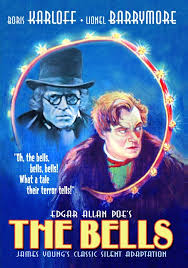
Mathias (Lionel Barrymore) lives in a small village. He and his wife Catharine (Caroline Frances Cooke) own and operate the local inn. Mathias also owns a lime kiln and, with his father-in-law, Hans (Lorimer Johnston), the local mill. Mathias is a mild and generous man who is running to be the local burgomaster. He has a tendency to be too generous even though his finances are sparse.
Mathias is in debt to town resident, Jerome Frantz (Gustav von Seyffertitz). His debt will soon become due. If he does not pay Frantz back the 6,000 francs he owes, Frantz will end up owning all of Mathias’ holdings. Frantz is willing to forgive Mathias’ debt if he agrees to allow him to marry Annette (Lola Todd), Mathias’ beautiful daughter. Mathias states that Annette will marry the man of her choice and will not force her to marry anyone.
New to the village is the newly appointed gendarme, Christian (Edward Phillips). When Christian and Annette meet, they become smitten with each other. Christian and Annette fall in love and Christian asks Mathias, to Frantz’s chagrin, to marry Annette. Wedding plans are made.
One night, during a raging winter storm, a Polish Jew, Baruch Koweski (E. Alyn Warren) comes to the inn to rest and get warm. Mathias welcomes the stranger and gives him food and drink. Mathias then learns that Baruch has a money belt full of gold. He tells Baruch that it is dangerous to tell anyone about the gold and warns him about thieves. Baruch thanks Mathias for his hospitality and goes on his way. In a flash of desperation, Mathias follows Baruch out into the storm. He kills the traveler, takes the gold and dumps the body in his lime kiln. With the blood money Mathias pays off his debts, is elected to be the burgomaster and has more than enough money to give his daughter a dowry.
The murder, however, doesn’t sit very well with Mathias. He begins seeing Baruch in ghostly form. Baruch’s brother, Jethro Koweski (E. Alyn Warren) comes to the village looking for whoever murdered his brother. He has with him a mesmerist (Boris Karloff) who he says can help find the killer. Mathias’ guilty conscience won’t let him alone, and the once jovial man begins to become depressed and suffer from hallucinations and torturous dreams.
“The Bells” was released in 1926 and was directed by James Young. It is an American silent crime film. The movie was based on an 1867 French stage play “Le Juif Polonais” or “The Polish Jew” by Erckmann-Chatrian. In 1871 the play was translated into English and retitled “The Bells”. Several movies were made, in various countries, from the play, many of them silent; a few of them are considered lost.
It ended up being more of a morality tale with horror aspects. Many compare it to Poe’s “The Tell Tale Heart”, or D.W. Griffith’s “The Avenging Conscience” and there are similarities in their themes. Despite popular belief, neither the play nor the film has anything to do with the Edgar Allan Poe poem of the same name.
The main draw for the film is the cast. Lionel Barrymore is excellent as the soul tortured Mathias. Also in the film is Boris Karloff. His performance was fine but there really wasn’t much in the way of character development on display to really assess his performance.

